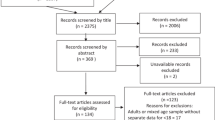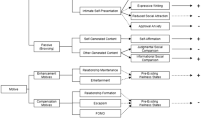Abstract
An association among adults between adverse childhood experiences (ACEs) and arterial stiffness and between arterial stiffness and cardiovascular disease has been established. Recent cross-sectional evidence suggests that ACEs is linked to the development and progression of arterial stiffness, but it remains unclear when these changes begin to manifest. We examine the relationship between ACEs and changes in arterial stiffness from childhood into adulthood using population-based longitudinal data. The Niagara Longitudinal Heart Study (NLHS) pilot data included 76 young adults (females = 44), with an average age of 21 years (SD = 1), and had a follow-up period of 9 years. Mixed effects modeling was used to examine the effect of ACEs on changes in arterial stiffness over time adjusting for sex, changes in heart rate, systolic blood pressure, body mass index, and physical activity. Individuals with four or more ACEs have a greater increase in arterial stiffness over time from childhood into young adulthood. This increase was similar for both males and females and independent of the effects of change in heart rate, systolic blood pressure, body mass index, and physical activity. Exposure to ACEs is associated with greater increase in arterial stiffness, a marker for cardiovascular disease among adults. This suggests that interventions targeted at individuals with high exposure to ACEs early on in life could lower the risk of arterial stiffness and in turn the cascade of events leading to cardiovascular disease.


Similar content being viewed by others
References
Afifi, T. O., MacMillan, H. L., Boyle, M., Taillieu, T., Cheung, K., & Sareen, J. (2014). Child abuse and mental disorders in Canada. CMAJ, 186(9), E324–E332. https://doi.org/10.1503/cmaj.131792.
Alastalo, H., Räikkönen, K., Pesonen, A. K., Osmond, C., Barker, D. J. P., Heinonen, K., Kajantie, E., & Eriksson, J. G. (2013). Early life stress and blood pressure levels in late adulthood. Journal of Human Hypertension, 27(2), 90–94. https://doi.org/10.1038/jhh.2012.6.
AlShawi, A. F., & Lafta, R. K. (2014). Relation between childhood experiences and adults’ self-esteem: A sample from Baghdad. Qatar Medical Journal, 2014(2). https://doi.org/10.5339/qmj.2014.14.
Aminbakhsh, A., & Mancini, G. B. J. (1999). Carotid intima-media thickness measurements: What defines an abnormality? A systematic review. Clinical and Investigative Medicine.
Benetos, A., Laurent, S., Hoeks, A. P., Boutouyrie, P. H., & Safar, M. E. (1993). Arterial alterations with aging and high blood pressure. A noninvasive study of carotid and femoral arteries. Arteriosclerosis, Thrombosis, and Vascular Biology, 13(1), 90–97. https://doi.org/10.1161/01.ATV.13.1.90.
Benjamin, E. J., Virani, S. S., Callaway, C. W., Chamberlain, A. M., Chang, A. R., Cheng, S., et al. (2018). Heart disease and stroke statistics – 2018 update: A report from the American Heart Association. Circulation, 137(12), E67–E492. https://doi.org/10.1161/CIR.0000000000000558.
Cecelja, M., & Chowienczyk, P. (2012). Role of arterial stiffness in cardiovascular disease. JRSM Cardiovascular Disease, 1(4), 1–10. https://doi.org/10.1258/cvd.2012.012016.
Cicchetti, D. (2013). Annual research review: Resilient functioning in maltreated children - past, present, and future perspectives. Journal of Child Psychology and Psychiatry and Allied Disciplines., 54, 402–422. https://doi.org/10.1111/j.1469-7610.2012.02608.x.
Craig, C. L., Marshall, A. L., Sjöström, M., Bauman, A. E., Booth, M. L., Ainsworth, B. E., et al. (2003). International physical activity questionnaire: 12-country reliability and validity. Medicine and Science in Sports and Exercise, 35(8), 1381–1395. https://doi.org/10.1249/01.MSS.0000078924.61453.FB.
D’Andrea, W., Sharma, R., Zelechoski, A. D., & Spinazzola, J. (2011). Physical health problems after single trauma exposure: When stress takes root in the body. Journal of the American Psychiatric Nurses Association, 17, 378–392. https://doi.org/10.1177/1078390311425187.
DeGoma, E. M., Knowles, J. W., Angeli, F., Budoff, M. J., & Rader, D. J. (2012). The evolution and refinement of traditional risk factors for cardiovascular disease. Cardiology in Review., 20, 118–129. https://doi.org/10.1097/CRD.0b013e318239b924.
Dube, S. R., Williamson, D. F., Thompson, T., Felitti, V. J., & Anda, R. F. (2004). Assessing the reliability of retrospective reports of adverse childhood experiences among adult HMO members attending a primary care clinic. Child Abuse and Neglect, 28(7), 729–737. https://doi.org/10.1016/j.chiabu.2003.08.009.
Felitti, V. J., Anda, R. F., Nordenberg, D., Williamson, D. F., Spitz, A. M., Edwards, V., et al. (1998). Relationship of childhood abuse and household dysfunction to many of the leading causes of death in adults: The adverse childhood experiences (ACE) study. American Journal of Preventive Medicine, 14(4), 245–258. https://doi.org/10.1016/S0749-3797(98)00017-8.
Ferreira, J. P., Girerd, N., Bozec, E., Machu, J. L., Boivin, J. M., London, G. M., Zannad, F., & Rossignol, P. (2016). Intima-media thickness is linearly and continuously associated with systolic blood pressure in a population-based cohort (STANISLAS cohort study). Journal of the American Heart Association, 5(6). https://doi.org/10.1161/JAHA.116.003529.
Godin Leisure-Time Exercise Questionnaire. (1997). Medicine and. Science in Sports and Exercise, 29(6 SUPPL), 36–38. https://doi.org/10.1097/00005768-199706001-00009.
Hakulinen, C., Pulkki-Råback, L., Elovainio, M., Kubzansky, L. D., Jokela, M., Hintsanen, M., Juonala, M., Kivimäki, M., Josefsson, K., Hutri-Kähönen, N., Kähönen, M., Viikari, J., Keltikangas-Järvinen, L., & Raitakari, O. T. (2016). Childhood psychosocial cumulative risks and carotid intima-media thickness in adulthood: The cardiovascular risk in young finns study. Psychosomatic Medicine, 78(2), 171–181. https://doi.org/10.1097/PSY.0000000000000246.
Hughes, K., Lowey, H., Quigg, Z., & Bellis, M. A. (2016). Relationships between adverse childhood experiences and adult mental well-being: Results from an English national household survey. BMC Public Health, 16, 222. https://doi.org/10.1186/s12889-016-2906-3.
Kelly, J., Mangos, G., Williamson, P., & Whitworth, J. (1998). Cortisol and hypertension. Clinical and Experimental Pharmacology and Physiology, 25(S1), S51–S56. https://doi.org/10.1111/j.1440-1681.1998.tb02301.x.
Klassen, S. A., Chirico, D., O’Leary, D. D., Cairney, J., & Wade, T. J. (2016). Linking systemic arterial stiffness among adolescents to adverse childhood experiences. Child Abuse and Neglect, 56, 1–10. https://doi.org/10.1016/j.chiabu.2016.04.002.
Laogun, A. A., & Gosling, R. G. (1982). In vivo arterial compliance in man. Clinical Physics and Physiological Measurement, 3(3), 201–212. https://doi.org/10.1088/0143-0815/3/3/004.
Laurent, S., Katsahian, S., Fassot, C., Tropeano, A. I., Gautier, I., Laloux, B., & Boutouyrie, P. (2003). Aortic stiffness is an independent predictor of fatal stroke in essential hypertension. Stroke., 34, 1203–1206. https://doi.org/10.1161/01.STR.0000065428.03209.64.
Logan, J. G., & Kim, S. S. (2016). Resting heart rate and aortic stiffness in normotensive adults. Korean Circulation Journal, 46(6), 834–840. https://doi.org/10.4070/kcj.2016.46.6.834.
Loucks, E. B., Taylor, S. E., Polak, J. F., Wilhelm, A., Kalra, P., & Matthews, K. A. (2014). Childhood family psychosocial environment and carotid intima media thickness: The CARDIA study. Social Science and Medicine, 104, 15–22. https://doi.org/10.1016/j.socscimed.2013.12.015.
MacMillan, H. L., Fleming, J. E., Trocmé, N., Boyle, M. H., Wong, M., Racine, Y. A., et al. (1997). Prevalence of child physical and sexual abuse in the community: Results from the Ontario health supplement. Journal of the American Medical Association, 278(2), 131–135. https://doi.org/10.1001/jama.278.2.131.
MacMillan, H. L., Tanaka, M., Duku, E., Vaillancourt, T., & Boyle, M. H. (2013). Child physical and sexual abuse in a community sample of young adults: Results from the Ontario child health study. Child Abuse and Neglect, 37(1), 14–21. https://doi.org/10.1016/j.chiabu.2012.06.005.
Marchais, S. J., Guerin, A. P., Pannier, B., Delavaud, G., & London, G. (1993). Arterial compliance and blood pressure. Drugs, 46(2), 82–87. https://doi.org/10.2165/00003495-199300462-00015.
Miller, G. E., Chen, E., & Zhou, E. S. (2007). If it goes up, must it come down? Chronic stress and the hypothalamic-pituitary-adrenocortical axis in humans. Psychological Bulletin, 133, 25–45. https://doi.org/10.1037/0033-2909.133.1.25.
Noll, J. G., Zeller, M. H., Trickett, P. K., & Putnam, F. W. (2007). Obesity risk for female victims of childhood sexual abuse: A prospective study. Pediatrics, 120(1), e61–e67. https://doi.org/10.1542/peds.2006-3058.
Pahkala, K., Laitinen, T. T., Heinonen, O. J., Viikari, J. S. A., Ronnemaa, T., Niinikoski, H., Helajarvi, H., Juonala, M., Simell, O., & Raitakari, O. T. (2013). Association of Fitness with vascular intima-media thickness and elasticity in adolescence. Pediatrics, 132(1), e77–e84. https://doi.org/10.1542/peds.2013-0041.
Papaioannou, T. G., Protogerou, A. D., Nasothimiou, E. G., Tzamouranis, D., Skliros, N., Achimastos, A., Papadogiannis, D., & Stefanadis, C. I. (2012). Assessment of differences between repeated pulse wave velocity measurements in terms of bias in the extrapolated cardiovascular risk and the classification of aortic stiffness: Is a single PWV measurement enough. Journal of Human Hypertension, 26(10), 594–602. https://doi.org/10.1038/jhh.2011.76.
Pretty, C., O’Leary, D. D., Cairney, J., & Wade, T. J. (2013). Adverse childhood experiences and the cardiovascular health of children: A cross-sectional study. BMC Pediatrics, 13(1). https://doi.org/10.1186/1471-2431-13-208.
Reiser, S. J., McMillan, K. A., Wright, K. D., & Asmundson, G. J. G. (2014). Adverse childhood experiences and health anxiety in adulthood. Child Abuse and Neglect, 38(3), 407–413. https://doi.org/10.1016/j.chiabu.2013.08.007.
Rhee, S. S., & Pearce, E. N. (2011). The endocrine system and the heart: A review. Revista Española de Cardiología (English Edition), 64(3), 220–231. https://doi.org/10.1016/j.rec.2010.10.016.
Ross, K. M., Liu, S., Tomfohr, L. M., & Miller, G. E. (2013). Self-esteem variability predicts arterial stiffness trajectories in healthy adolescent females. Health Psychology, 32(8), 869–876. https://doi.org/10.1037/a0031458.
Sallis, J. F., Buono, M. J., Roby, J. J., Micale, F. G., & Nelson, J. A. (1993). Seven-day recall and other physical activity self-reports in children and adolescents. Medicine and Science in Sports and Exercise, 25(1), 99–108. https://doi.org/10.1249/00005768-199301000-00014.
Seldenrijk, A., Van Hout, H. P. J., Van Marwijk, H. W. J., De Groot, E., Gort, J., Rustemeijer, C., et al. (2011). Depression, anxiety, and arterial stiffness. Biological Psychiatry, 69(8), 795–803. https://doi.org/10.1016/j.biopsych.2010.12.034.
Slopen, N., Koenen, K. C., & Kubzansky, L. D. (2012). Childhood adversity and immune and inflammatory biomarkers associated with cardiovascular risk in youth: A systematic review. Brain, Behavior, and Immunity., 26, 239–250. https://doi.org/10.1016/j.bbi.2011.11.003.
Stein, J. H., Korcarz, C. E., & Post, W. S. (2009). Use of carotid ultrasound to identify subclinical vascular disease and evaluate cardiovascular disease risk: Summary and discussion of the american society of echocardiography consensus statement. Preventive Cardiology., 12, 34–38. https://doi.org/10.1111/j.1751-7141.2008.00021.x.
Stroud, L. R., Foster, E., Papandonatos, G. D., Handwerger, K., Granger, D. A., Kivlighan, K. T., & Niaura, R. (2009). Stress response and the adolescent transition: Performance versus peer rejection stressors. Development and Psychopathology, 21(1), 47–68. https://doi.org/10.1017/S0954579409000042.
Su, S., Wang, X., Kapuku, G. K., Treiber, F. A., Pollock, D. M., Harshfield, G. A., McCall, W. V., & Pollock, J. S. (2014). Adverse childhood experiences are associated with detrimental hemodynamics and elevated circulating endothelin-1 in adolescents and young adults. Hypertension, 64(1), 201–207. https://doi.org/10.1161/HYPERTENSIONAHA.113.02755.
Su, S., Wang, X., Pollock, J. S., Treiber, F. A., Xu, X., Snieder, H., McCall, W. V., Stefanek, M., & Harshfield, G. A. (2015). Adverse childhood experiences and blood pressure trajectories from childhood to young adulthood the Georgia stress and heart study. Circulation, 131(19), 1674–1681. https://doi.org/10.1161/CIRCULATIONAHA.114.013104.
Tziomalos, K., Athyros, V. G., Karagiannis, A., & Mikhailidis, D. P. (2007). Endothelial function, arterial stiffness and lipid lowering drugs. Expert Opinion on Therapeutic Targets, 11(9), 1143–1160. https://doi.org/10.1007/BF00386807.
Wade, T. J., Bowden, J., & Jane Sites, H. (2018). Child maltreatment and motor coordination deficits among preschool children. Journal of Child and Adolescent Trauma., 11, 159–162. https://doi.org/10.1007/s40653-017-0186-4.
Wade, T. J., O’Leary, D. D., Dempster, K. S., MacNeil, A. J., Molnar, D. S., McGrath, J., & Cairney, J. (2019). Adverse childhood experiences (ACEs) and cardiovascular development from childhood to early adulthood: Study protocol of the Niagara longitudinal heart study. BMJ Open, 9(7), e030339. https://doi.org/10.1136/bmjopen-2019-030339.
Wildman, R. P., Mackey, R. H., Bostom, A., Thompson, T., & Sutton-Tyrrell, K. (2003). Measures of obesity are associated with vascular stiffness in young and older adults. Hypertension, 42(4 I), 468–473. https://doi.org/10.1161/01.HYP.0000090360.78539.CD.
Yang, Y., Fairbairn, C., & Cohn, J. F. (2013). Detecting depression severity from vocal prosody. IEEE Transactions on Affective Computing, 4(2), 142–150. https://doi.org/10.1109/T-AFFC.2012.38.
Funding
This work was supported by grants from Canadian Institutes of Health Research (CIHR) (363774) and Heart and Stroke Foundation of Ontario (SDA6237).
Author information
Authors and Affiliations
Corresponding author
Ethics declarations
Conflict of Interest
The authors declare that they have no conflict of interest.
Informed Consent
Informed consent was obtained from all individual participants included in the study.
Additional information
Publisher’s Note
Springer Nature remains neutral with regard to jurisdictional claims in published maps and institutional affiliations.
Electronic supplementary material
ESM 1
(DOCX 18 kb)
Rights and permissions
About this article
Cite this article
Rafiq, T., O’Leary, D.D., Dempster, K.S. et al. Adverse Childhood Experiences (ACEs) Predict Increased Arterial Stiffness from Childhood to Early Adulthood: Pilot Analysis of the Niagara Longitudinal Heart Study. Journ Child Adol Trauma 13, 505–514 (2020). https://doi.org/10.1007/s40653-020-00311-3
Published:
Issue Date:
DOI: https://doi.org/10.1007/s40653-020-00311-3




